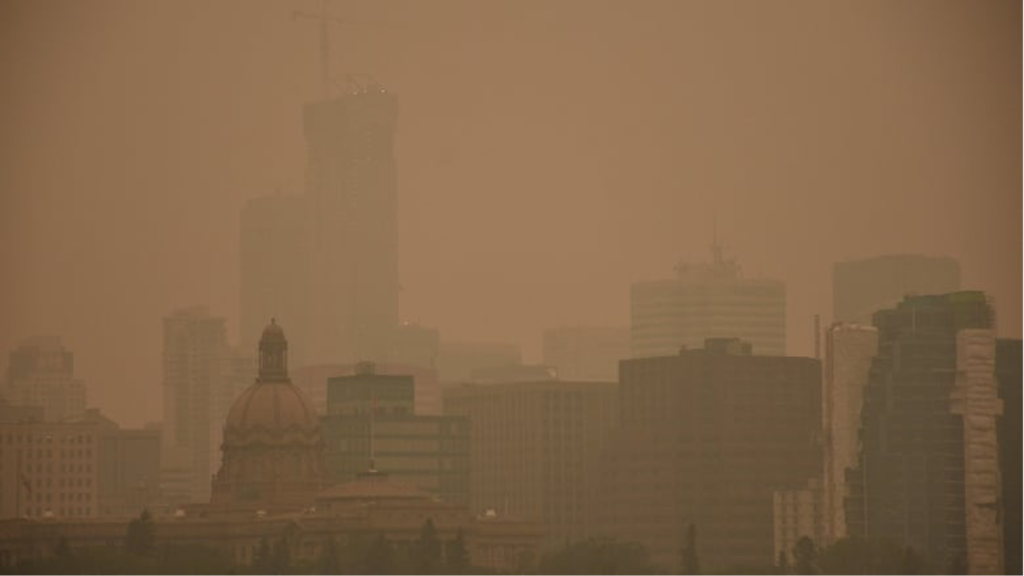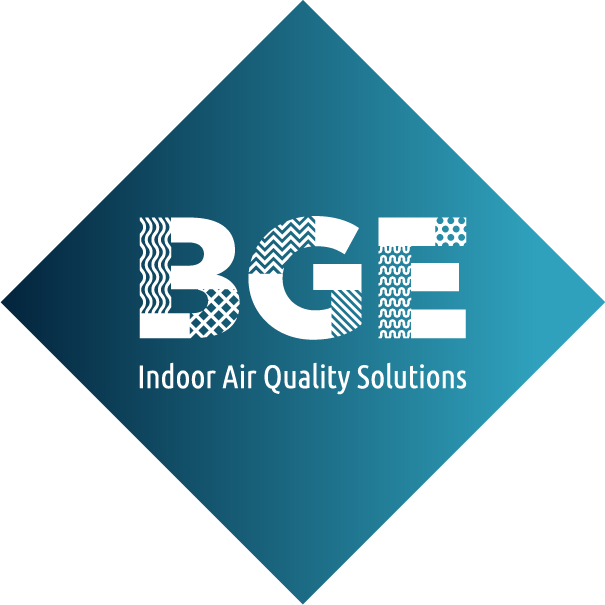With every changing season, there are new and unique challenges to our indoor air quality (IAQ) that we need to be prepared for.
When it comes to wildfires, not only are these potentially devastating natural disasters, they can also have a severe impact on our health and our facilities for a long time after the fire is suppressed. In fact, the indoor air quality can be compromised by up to 20x during and after a wildfire.
But with the right information and preparation, you can minimize the impact of wildfire smoke on your equipment, your processes, and most importantly, your occupants.
With wildfires, we need to be concerned about two different types of contaminants:
- Odours: the smell of smoke and ash can cause headaches, nausea, and an unpleasant indoor environment.
- Particulate matter: the actual ash and burnt physical matter that gets released into the air and into our eyes, nose, and eventually our lungs.
Odour is inconvenient, but particulate matter kills.

Different filters protect against different contaminants.
To effectively protect against these two types of contaminants, you need two different types of filters.
Pleated air filters capture particulate matter, and depending on the efficiency of the filter, they can be extremely effective at removing even the tiniest particulate matter from your indoor air before it is recirculated into your indoor air. Gas-phase filters, typically made from activated carbon media, are the best protection against chemical and odour contaminants.
With both of these filters, you should use the highest efficiency filter your mechanical system can handle, but more importantly, you should make sure that these filters fit and are well-sealed into the mechanical system. If there is any gap between the filter and the housing, air will go around the filter instead of through it and you will lose efficiency and effectiveness.
Your mechanical system may not be designed to scrub both odour and particulate matter from your indoor air.
Your mechanical system has limitations—based on how it was initially designed, it may not have the physical room to accommodate filtration solutions for both odour and particulate matter. In this case, we recommend that you focus on the particulate matter, not on odour. However, if you are in a location that is regularly subject to wildfires, it is recommended that you consider expanding your mechanical systems to accommodate both types of filters during your next round of system upgrades.
For added protection against both particulate matter and odour, you can supplement with a Portable Room Air Purifier to augment the capabilities of your mechanical system, rather than compromising the performance of your pleated filters.
For the best protection, get back to basics.
Maintaining healthy indoor air quality during any time of year, and especially during wildfires, always comes back to a set of basic first principles:
- Determine the correct balance of fresh vs. recirculated air: In smoke events, you will need to adjust your systems and rely more heavily on recirculated air. During cold and flu seasons, flushing spaces and ventilating with more outside air may be more appropriate. Understanding your system, environmental factors and ventilation requirements helps to maintain healthier indoor spaces year round.
- Check your systems for fit and integrity: check your mechanical systems regularly to make sure that there is a tight seal between your filter bank and your filters. Do not let any air get around your filters if possible. This will ensure that you’re getting the highest return on your investment.
- Test and monitor your indoor air quality regularly: changes to your outdoor and indoor environment can impact your indoor air quality and may require you to change your strategy more dynamically. With periodic IAQ testing, you can eliminate the guesswork and know exactly what contaminants are in your indoor air.
As always, if there is anything we can help with, just reach out to an Indoor Air Quality Advisor and we’ll be happy to help.




